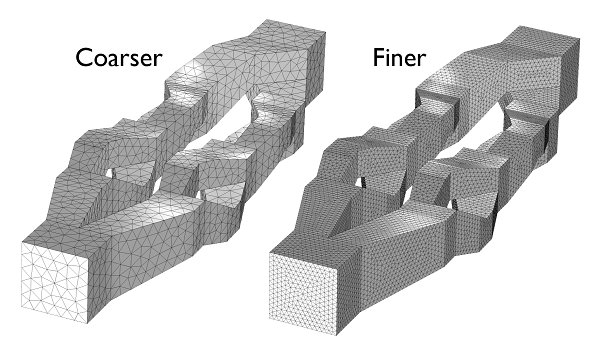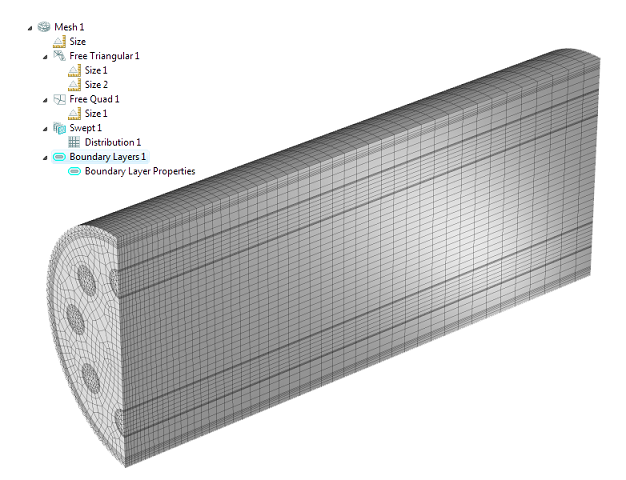
Online engineering magazines, like Design World and Desktop Engineering, are great for anyone out there interested in emerging technologies. I especially liked a few recent articles: two in Design World’s “CAE Solutions” section and one in Desktop Engineering’s simulation section, detailing a couple of major topics important to finite element analysis, or FEA. First there is meshing, the foundation of FEA software. Second, there is optimization, which is all about maximizing efficiency and improving results. The key for any production company, is an efficient product development process. FEA is a powerful tool to replace a lot of experimentation and prototype manufacturing, and optimization can be used to make virtual prototyping faster, maximizing the effectiveness of the FEA software.
Meshing 101, with the Best
While reading the February 2013 edition of Design World magazine, I came across a great article about meshing, written by Evan Yares. For engineers and scientists who are unfamiliar with computer-aided engineering (CAE) software, this is a perfect article to get started with. Meshing is the foundation of COMSOL — and something we don’t take lightly.
Meshing is the foundation of COMSOL — and something we don’t take lightly.
The article outlines different categories of meshing software (CAD-integrated CAE software, standalone CAE software with integrated meshing, and specialized meshing software), and COMSOL Multiphysics falls under the second category. Our users get the option of automatic “physics-controlled” meshes or “user-controlled” meshes. For simpler geometries, a physics-controlled mesh is faster and sufficient for accurate results. Pamela Waterman notes in the January 2013 edition of Desktop Engineering that there are nine different preset mesh size settings in COMSOL, ranging from Extremely Fine to Extremely Coarse.

A geometry comparing a coarser and a finer mesh.
For more complicated geometries, COMSOL offers a user-controlled mesh, with various options to give more accurate, refined results. Some of these options include mapped, swept, and boundary layer meshing. Looking back to the different meshing program categories, we understand that sometimes a third-party specialist meshing program will be preferable for some models. COMSOL does support third-party mesh programs with an import feature for NASTRAN-format meshes. When using third-party mesh programs, only one mesh needs to be built, and can be used with several FEA software.

A user-controlled mesh with a several different mesh options used.
Another feature in the article mentions what “has long been one of the biggest impediments to using CAE software” — over-complicated and/or defective CAD models. Often, the nuances and specific details inherent in CAD Models are not necessary for simulation, and serve only to slow the simulations down. COMSOL’s LiveLink products house the CAD Import Module, which contains defeaturing and repair tools that can simplify CAD models and remove defects for better simulation results.
Optimization
A month after reading the meshing article, I found another article in the March 2013 edition of Design World by the same author. This time, Yares chose to write about optimization. Optimization is a powerful method for obtaining the most accurate results for FEA analysis and is becoming more and more mainstream for all engineers and scientists. A particularly powerful subtitle of the article states: “It [optimization] used to be only for PhDs. Not anymore.” Yares goes into detail about an optimization problem involving the structure and shape of airplanes, an example more complex than most. COMSOL offers an Optimization Module to solve parametric, topology, and time-dependent optimization problems. Combining a LiveLink product together with the Optimization Module makes it possible to optimize model dimensions directly in the CAD program.
“It [optimization] used to be only for PhDs. Not anymore.”
If you’re interested in, but unfamiliar with, finite element analysis and want to learn more, these are great articles to start with. FEA is a powerful tool that can save engineers, scientists, physicians, and educators valuable time and money.




Comments (0)